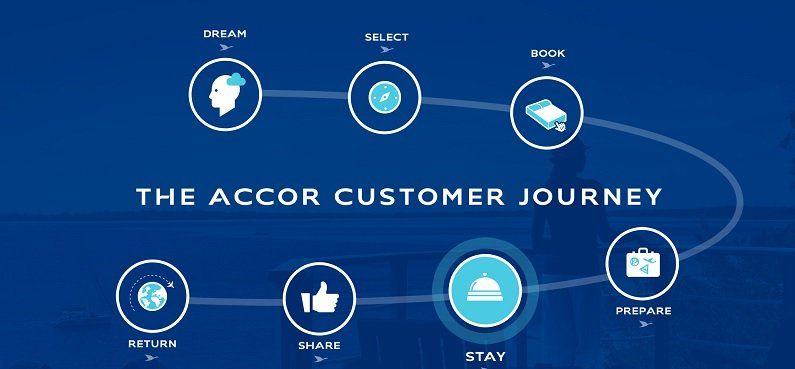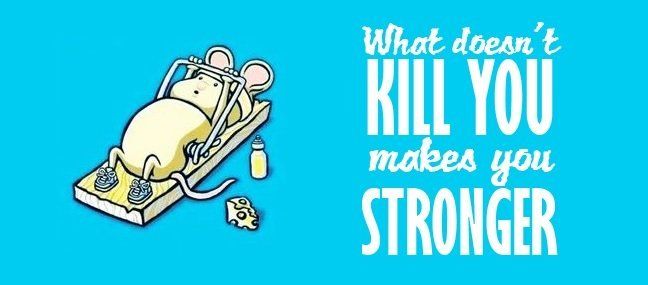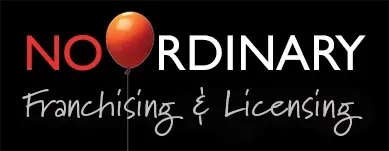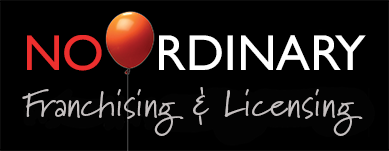12 LESSONS TO MAKE YOUR FRANCHISEES HAPPIER AND MORE PRODUCTIVE
In my 20 years in franchising, I have learned many lessons on the best way to manage franchises – some the hard way, and many from people who do it very well. Here are twelve of them.
1. Be yourself
Too many franchisors come across as impersonal, lofty, distanced from their franchisees. But in my experience the best franchise leaders – and I say leaders rather than managers – are those who aren’t afraid to be themselves. Yes, they’re professional in everything they do, but they’re also seen as people – people who’re not afraid to let their hair down from time to time, who openly enjoy their interaction with their network.
These are leaders who franchisees can relate to, even like – and that can make all the difference when tough decisions need to be made.

2. Be selective about potential franchisees
It’s one thing to have a great brand, system and support team, but without the right franchisees, these advantages won’t come across to the customer as advantages at all. The dilemma in franchising is that when you need to grow your network, sometimes you’re prepared to sacrifice quality for quantity. Some franchisors even seem to use churn as a way of improving franchisee quality over time, forgetting the damage this can cause to the brand and their standing among their other franchisees.
3. Be consistent
We all have franchisees we get on with better than others – the challenge is to treat everybody in the same fair, even-handed way. If your franchise agreement is worth its salt it will have a clause in it that essentially reserves your right to enforce or not enforce franchisees’ obligations under the agreement no matter whether you have enforced or not enforced those obligations with other franchisees in the past. This gives you as franchisor the flexibility you need to deal with franchisees as you see fit given the circumstances – but beware! It can also be a minefield if not handled with the utmost delicacy.
4. Know your customers and franchisees
A best-practice study tour I participated in made it clear to me that the best franchises are those in the best strategic health – that is, the franchisors have a better understanding of their franchisees’ customers and value drivers than their franchisees do.

5. Be more metrics-driven
How do you, as a franchisor, really know your franchisees and their businesses when you have 50, or 100, or 200 of them and can only catch up face-to-face with them every few weeks? The answer is to keep your finger on the pulse of your network by monitoring the key value drivers or metrics of the business. The best franchises have systems which allow franchisors to monitor these metrics in real time and raise red flags as soon as any issues crop up. The metrics can also be benchmarked across the network to provide franchisors with an invaluable management tool.
6. Get more and better technology
The digital age has had an incredibly significant impact on franchising – and it has and will continue to be a game changer. Video rental franchises such as Blockbuster have been hurt by the rise of digital competitors such as Netflix, but others have altered their business models to incorporate technology.
For example, travel agencies such as House of Travel now allow customers to book their travel online through their own website rather than give that potential business away to online-only competitors like Webjet. Technology has also made it possible for both franchisors and franchisees to do business faster. Franchisors are using Skype and cloud-based franchise management systems to stay close to their franchisees without leaving their offices, and franchisees are using online ordering systems and mobile technology to streamline the customer experience and take cost out of their businesses.

7. Put your franchisees first
Who are most important – your customers or your franchisees? Clearly, they’re both important, but unless your franchisees are happy, it’s unlikely that they’ll make the customers happy. Put another way, unless your franchise’s customers pay your franchisees, your franchisees won’t pay you. As franchisor, your first customers are in reality your franchisees. That’s why the second key ingredient common to all best-practice franchises, together with strategic health, is strong organisational culture. A big part of that culture staying close to your franchisees. After all, as everybody knows, a franchisee, not the franchisor, invented the signature Big Mac. And as Frank DeLuca points out, Starbucks’ Frappuccino was invented by a line employee named Dina Campion.
8. Don’t forget the lessons learned from the recession
The recession may seem a long time ago, but it was a good thing in some ways for franchising. It demonstrated that franchised businesses are more resilient than most non-franchised businesses in hard times, thanks to the systems and support offered by franchises. It also forced franchisors to shift their focus away from network expansion to improving their businesses. The result is that many franchises came out of the recession stronger. The challenge now is for franchisors to stay focused on keeping their franchises strong as they move into high growth mode.

9. Get ready for more Government interference
There’s a trend today for governments around the world to get more involved in regulating employment and business practices, often without consideration for franchising. Franchising is a special case in that it is not like other businesses, occupying a kind of middle ground between big business and small business that regulators seem to struggle to get their heads around. Franchise organisations such as the International Franchise Association and Franchise Association of New Zealand have done battle on some of this new legislation and had some wins, but franchisors need to accept that some change is going to be inevitable and adjust their business models accordingly.
10. Embrace the on-demand economy
Taxi drivers in Paris brought the city to a grinding halt when they blocked traffic in protest to Uber. Uber is a high-profile example of a new type of economy, the on-demand economy, which enables people to provide services – like offering rides in their cars, which can be remarkably similar to a taxi service – without the red tape that’s been traditionally required – holding a taxi licence, for example. There have been protests and law suits against Uber and other on-demand services around the world, but smart franchisors, rather than seeing these services simply as a threat, have adopted an “if you can’t beat ‘em, join ‘em” attitude, utilising smart on-demand technology to improve their own services.

11. Take responsibility
Pretty much every franchisor trains franchisees to deliver the best experience possible for their customers – every time. But what happens if the franchisor slips up? Often the issue is simply swept under the rug by the franchisor. After all, the franchisor must always be seen to be right, isn’t that so? But that kind of behaviour can create resentment amongst franchisees. Better to do what you train your franchisees to do – admit your mistake, apologise and make amends.
12. Have the right leaders
I have a client at the moment who has a problem – she has grown her franchise to the point where it’s too big for New Zealand, but the manager she has now appointed to run the New Zealand operation for her while she expands the franchise offshore is not working out. I’ve had the same thing happen to me when I was running franchises. One manager whom I appointed on my business partners’ recommendation turned out to be pure poison. The lesson I learned is to hire slowly – and fire fast.
How's your franchise leadership? I've found that the best leaders are those who continually "sharpen the saw" – that is, develop and refine their approach and skills. I've also found that leading a franchise is different in some ways from leading other types of business. That's where I can help with my leadership evaluation and coaching programmes – contact me
for a free Initial Consultation in strictest confidence.
I'm Robin La Pere, no ordinary business expansion and franchise consultant. I've been involved in franchising for more than 20 years, and have a combination of franchise management, franchise ownership and franchise consulting experience. I understand the industry at every level and across a wide range of business types. I have worked with many franchise systems to improve, develop and innovate. In 2016, one of my clients won four major awards at the New Zealand Franchise Awards, including Supreme Franchise of the Year.
If you're looking to develop or improve your franchise, or win some awards, I recommend you download my free e-book,
The Business Model Canvas for Franchisors, and take advantage of my free Initial Consultation
to discuss some of the ways I can help you.
Relevant Articles
Subscribe to my newsletter
"Robin writes an e-letter which anyone interested in franchising should subscribe to - whether they agree with him or not!"
Dr Ken Billot, Franchise PhD
Dr Ken Billot, Franchise PhD
Every two weeks, I write an email newsletter designed for those in franchising and those considering getting into franchising. Topics include those you see in the articles listed above and are intended to be stimulating, helpful and challenging. These articles have helped me gain more than 100,000 followers on Twitter and worldwide connections on LinkedIn, but you can read them first by subscribing to the newsletter.
Subscribe by entering your email address here:
Contact Us
Download your free e-book
A major strength of franchising is that it’s based on tried and true business models. Trouble is, in this fast-changing business environment, what’s tried and true one year may be tired or irrelevant the next.
Not surprisingly, one out of three franchisors is concerned about the viability of their business model.
The 'Business Model Canvas' has emerged as a powerful tool for developing and updating business models. Recognising that franchise businesses differ in several ways from other business types, I have come up with a new version of the Business Model Canvas designed specifically for franchises.
Send me your email and I'll email you my e-book The Business Model Canvas for Franchisors:




